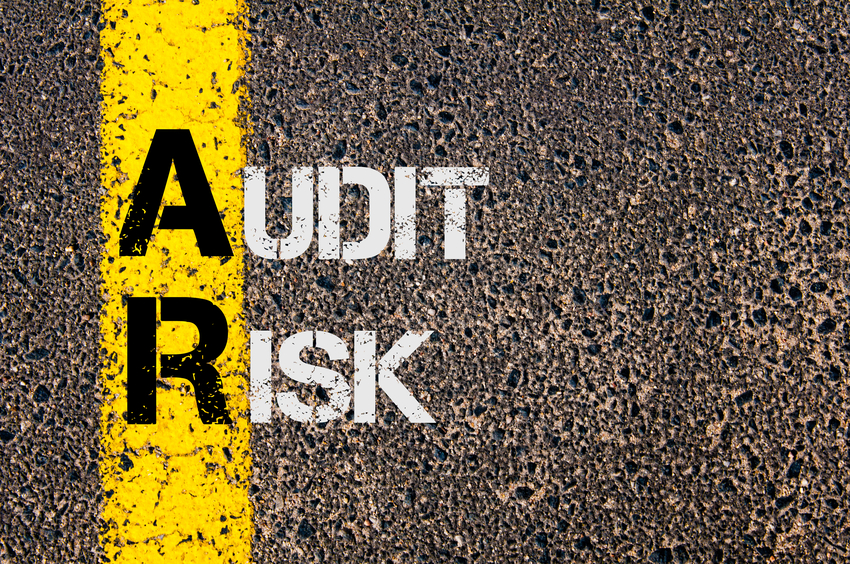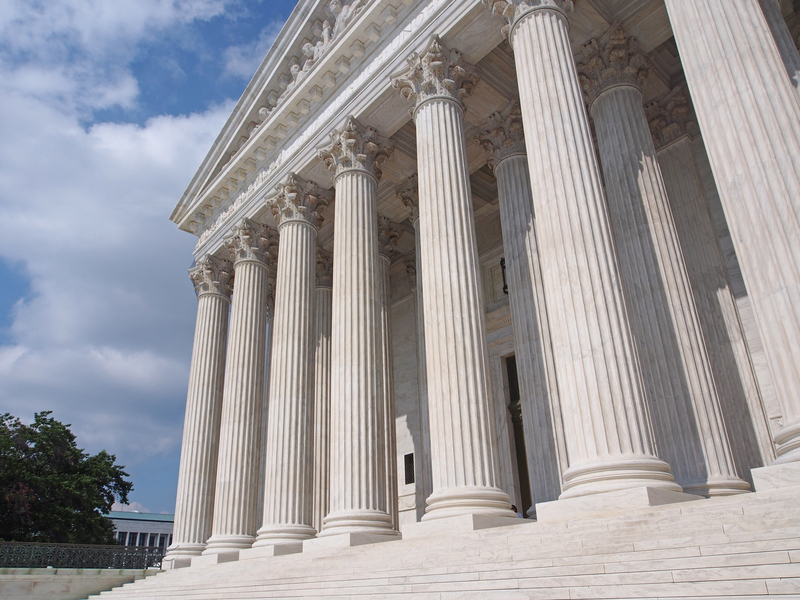There is a lot of residency guidance out there harping on the importance of taking various administrative steps to change your domicile, like changing your driver’s license, voter registration, vehicle registration, etc. And while those steps are certainly indicative of a move, they are typically less relevant to the final determination, and often can cause taxpayers to lose focus on what we think can be the most important factor in changing your domicile: where you spend your time. Indeed, a poor “time factor” can hamstring an otherwise legitimate change in domicile.
In July, the Massachusetts Appellate Tax Board (ATB) issued a decision upholding the state’s 2020 emergency regulation that required nonresident employees who worked in Massachusetts prior to the pandemic, but worked remotely due to the pandemic, to continue to apportion their income to Massachusetts.
But just because we’re posting about it—don’t confuse the Massachusetts’ emergency regulation with New York’s convenience rule. There are several key differences.
Over the past few years, we’ve seen a mass exodus of taxpayers leaving New York. Why? Well, first there was the COVID-19 pandemic; that didn’t help. But in the middle of the pandemic, the State raised the personal income tax rates to some of the highest in the nation. That didn’t help either! And then we had issues around a declining standard of living in New York City, empty office buildings, remote work, and safety issues, all leading more New Yorkers to seek out more friendlier climates.
As states continue to seek increased revenues, especially those high-tax states dealing with a dwindling tax base, we’re starting to see some states take unusual and fairly aggressive positions in tax cases. One recent example we covered involved New York and the enforcement of its “convenience rule” in the Zelinsky case. In November 2023, the Massachusetts Appellate Tax Board issued another doozy, holding in Welch v. Commissioner of Revenue that a nonresident could be taxed on the gain from the sale of stock. (Docket No. C339531 (November 29, 2023)).
Last month, we wrote about a recent ALJ Order dealing with New York’s application of the convenience rule to a situation where a taxpayer’s New York office was closed during COVID. In that piece, we noted that we expected a decision in February 2024 in the Zelinsky case, in which the petitioner was making similar arguments about the application of the convenience rule during COVID.
As our regular readers know (all 7 of them), one of the bigger SALT issues to come out of COVID, especially in New York, relates to New York’s “Convenience of the Employer” rule. Under that rule, wages that a nonresident employee earns while working outside of New York State are treated as New York-sourced income if the employee is working from home for their New York employer for their own convenience. As we reported back in October 2020, several months into the pandemic the New York Tax Department announced its position that COVID-related telecommuting would have no impact on its application of the convenience rule. And as we experienced in a number of personal income tax audits after that, the Tax Department extended this position even to situations where an employer had closed its office in New York.
A few weeks ago, the Tax Appeals Tribunal issued a decision in a residency case, Matter of Glynn, holding that the Administrative Law Judge’s grant of summary determination was properly granted to the Division of Taxation. This is somewhat unusual for a residency case, as more extensive fact finding is usually necessary to resolve these disputes. And our fellow blogger at Taxes in New York (“TiNY”) had a lot to say about this opinion. A few other thoughts from this corner………
Last month, New York State passed its 2023-24 Budget, better late than never. We highlighted a lot of the new provisions in a recent Tax Alert, but there are a couple of changes involving the Metropolitan Commuter Transportation Mobility Tax (the “MCTMT”) worthy of special note. The MCTMT functions somewhat like a payroll tax on employers in the Metropolitan Commuter Transportation District (which includes the counties of New York, Bronx, Kings, Queens, Richmond, Rockland, Nassau, Suffolk, Orange, Putnam, Dutchess, and Westchester). And it also applies to self-employed individuals, including partners in partnerships.
Edward Zelinsky, a Connecticut resident and professor at the Benjamin N. Cardozo School of Law in New York City, recently added another chapter to his New York tax chronicles, once again challenging New York’s convenience of the employer rule. Professor Zelinsky lost his previous battle with New York, Zelinsky v. Tax Appeals Tribunal, 1 N.Y.3d 85 (2003), cert. denied, 541 U.S. 1009 (2004), but this one has a bit of a different twist, as outlined in his 2019 and 2020 petitions for a hearing with the Division.
After years of considering a move from your high-income-tax state (I’m looking at you New York and California) to an income-tax-friendly state (hello Florida), you’ve finally decided to take the plunge. What do you do now? How do you ensure that you change your residence in a way that an auditor looking to collect tax revenue for the Tax Department in your former home state will respect?
My first piece of advice—don’t look to the internet for sophisticated legal advice on this topic.
Last month, New York’s highest court denied leave to appeal in Matter of Obus v. New York State Tax Appeals Trib., 206 A.D.3d 1511 (3d Dep’t. 2022), closing the book on litigation that will have lasting implications on New York’s ability to tax vacation-home owners, and perhaps others with tenuous connections to a New York dwelling, as tax “residents” of New York. The New York Court of Appeals’ refusal to hear the appeal leaves the lower court’s decision in Obus intact.
Big news on the residency front!
For years we’ve been battling the New York tax department on the scope of its statutory-residency test, and yesterday brought a huge victory in that fight. In Matter of Nelson Obus et al., v New York State Tax Appeals Tribunal, the court ruled that a seldom-used vacation home in New York cannot be considered a “permanent place of abode” for statutory residency purposes. Click here for the decision.
On June 20, 2019, both the NYS Assembly and Senate passed bills that made significant changes to the state’s treatment of two hot tax issues: the taxation of global intangible low-taxed income (“GILTI”), and the state’s threshold for establishing economic nexus for sales tax purposes. According to the Senate and Assembly websites, the legislation was signed into law by Governor Cuomo on June 24th.
According to a recent New York Times article, hedge-fund billionaire Kenneth C. Griffin purchased a $238 million apartment in January 2019 located at 220 Central Park South, making it the most expensive residential sale in United States history. Even in Manhattan, where huge real estate sales are downright routine, Griffin, founder and chief executive of the global investment firm Citadel, has managed to set a new record on an unfinished piece of property, a purchase that surpassed the cost of the next most expensive purchase by more than $100 million.
2018 has been an amazing year for tax practitioners. Since the passage of the Tax Cuts and Jobs Act, practitioners have been scrambling to understand the implications of the federal tax overhaul and to begin work on implementing new strategies for clients. And though the legislation obviously occurred at the federal level, many SALT practitioners have been dealing with the dramatic fallout at the state level as well, since aspects of the federal tax reform have had complicating and unexpected ramifications for state tax purposes.
For years we’ve been following a ticking income tax time bomb of sorts, dealing with a big 2017 issue for hedge fund managers receiving deferred income. We first started talking about this in 2013 (click here for the article) and followed-up on it a few times later (including here), wondering how states would react to all this. But up until last week, we’ve heard nothing from the New York tax department on the issue.
New Tribunal Case Offers Up a New Framework for Answering this Question
New York’s two-part test for statutory residency has been heavily litigated over the years, and one of the biggest issues has involved the determination as to whether a taxpayer maintained a “permanent place of abode.” In 2014, the State’s highest court in Gaied v. NYS Tax Appeals Tribunal struck down the Tax Department’s overly-broad interpretation of “permanent place of abode” in favor of a more sensible interpretation. In doing so, the High Court declared that in order for a place to constitute a permanent place of abode (“PPA”), “there must be some basis to conclude that the dwelling was utilized as the taxpayer’s residence.” And later in the decision, the Court opined that to qualify as a PPA, “the taxpayer must, himself, have a residential interest in the property”
 As practitioners who deal with New York income tax audits on a day-to-day basis, we often have a front row seat to new audit techniques and new areas of focus. And in recent years, we have noticed a lot more audit activity in the partnership or flow-through entity area. Most of this has centered around nonresident owners of flow-through entities, and more specifically the methodology in which these entities allocate income in and out of New York. As I have outlined before in some other articles (click here and here), often we can gain insight on trends like this by studying the audit guidelines that the Tax Department issues to its auditors. The Tax Department’s Nonresident Audit Guidelines are more widely-known, and available on the Tax Department's website., Over the years, however, the Tax Department has also issued different iterations of its Nonresident Allocation Guidelines, with the most recent version being issued in June 2013. But after about 17 focused minutes of Google searching (which is the maximum amount of time one should spend Googling something), I have not been able to find those guidelines anywhere on the Tax Department’s website, or on the Internet generally. That is, of course, until now.
As practitioners who deal with New York income tax audits on a day-to-day basis, we often have a front row seat to new audit techniques and new areas of focus. And in recent years, we have noticed a lot more audit activity in the partnership or flow-through entity area. Most of this has centered around nonresident owners of flow-through entities, and more specifically the methodology in which these entities allocate income in and out of New York. As I have outlined before in some other articles (click here and here), often we can gain insight on trends like this by studying the audit guidelines that the Tax Department issues to its auditors. The Tax Department’s Nonresident Audit Guidelines are more widely-known, and available on the Tax Department's website., Over the years, however, the Tax Department has also issued different iterations of its Nonresident Allocation Guidelines, with the most recent version being issued in June 2013. But after about 17 focused minutes of Google searching (which is the maximum amount of time one should spend Googling something), I have not been able to find those guidelines anywhere on the Tax Department’s website, or on the Internet generally. That is, of course, until now.
 There are always “traps” in the tax law, where taxpayers unwittingly walk into a tax problem that they didn’t see coming. In the residency area, some taxpayers often got trapped on a move-in or move-out situation, with the Tax Department taking the position that “statutory residency” trumps “domicile.” Thus, a taxpayer who didn’t move into New York until, say, August of a particular tax year still could be taxed as a full-year resident if he or she ran afoul of New York’s statutory residency test (i.e., the taxpayer maintained a permanent place of abode for almost the whole year and spent more than 183 days in the state). Indeed, the Nonresident Audit Guidelines (see page 64) contained a whole section about this.
There are always “traps” in the tax law, where taxpayers unwittingly walk into a tax problem that they didn’t see coming. In the residency area, some taxpayers often got trapped on a move-in or move-out situation, with the Tax Department taking the position that “statutory residency” trumps “domicile.” Thus, a taxpayer who didn’t move into New York until, say, August of a particular tax year still could be taxed as a full-year resident if he or she ran afoul of New York’s statutory residency test (i.e., the taxpayer maintained a permanent place of abode for almost the whole year and spent more than 183 days in the state). Indeed, the Nonresident Audit Guidelines (see page 64) contained a whole section about this.
Guess what? We may have closed this trap!
/practices-State_Local_Tax.html We have all heard the jokes. “How many lawyers does it take to screw in a light bulb?” “Why won’t sharks attack lawyers?” “What’s the difference between an accountant and a lawyer?” Or, “How many lawyer jokes are there?” Well, actually, the last one’s easy. Only three. The rest are true stories.
We have all heard the jokes. “How many lawyers does it take to screw in a light bulb?” “Why won’t sharks attack lawyers?” “What’s the difference between an accountant and a lawyer?” Or, “How many lawyer jokes are there?” Well, actually, the last one’s easy. Only three. The rest are true stories.
But despite the general public’s lampooning of attorneys, New York State taxpayers might have found a lawyer they can celebrate (in addition, of course, to their friends at Hodgson Russ). Meet Patrick J. Carr, a retired New York State attorney living in Florida. Last month, a state administrative law judge (ALJ) ruled that Mr. Carr did not have to pay a $68,000 tax bill for services rendered in Florida. Mr. Carr was a member of the New York and New Jersey state bars and was admitted pro hac vice in Florida (for non-lawyer readers, “pro hac vice” is a fancy Latin way of saying that an attorney who has not been admitted to practice in a certain jurisdiction is permitted to help litigate a particular case in that state). And although Mr. Carr did not perform any services or maintain any office in the state, New York attempted to tax his income solely because of his New York law license. Are you starting to root for Mr. Carr? Thankfully, however, ALJ Barbara Russo dismissed the state’s position and announced that “merely holding a license to practice in New York is not the equivalent of carrying on a profession in New York state.” So why did New York think that it had the right to tax Mr. Carr?
 One of the more interesting aspects I’ve seen in residency cases in my practice is the importance and understanding of a taxpayer’s intent in the overall analysis. That’s part of what makes residency cases so unique. There are likely very few situations in federal or state tax law where what is kicking around in somebody’s mind is critical to the determination of the tax issue. But the domicile test—which looks to discover where a taxpayer has his permanent or primary home—turns on the notion that the taxpayer’s intent can be a deciding factor. This can make the audit process really difficult. How do you prove to an auditor what your client was thinking? You can point to objective facts; you can point to case law; but how do you get into someone’s head? And more importantly, how do you convince an auditor to do the same?
One of the more interesting aspects I’ve seen in residency cases in my practice is the importance and understanding of a taxpayer’s intent in the overall analysis. That’s part of what makes residency cases so unique. There are likely very few situations in federal or state tax law where what is kicking around in somebody’s mind is critical to the determination of the tax issue. But the domicile test—which looks to discover where a taxpayer has his permanent or primary home—turns on the notion that the taxpayer’s intent can be a deciding factor. This can make the audit process really difficult. How do you prove to an auditor what your client was thinking? You can point to objective facts; you can point to case law; but how do you get into someone’s head? And more importantly, how do you convince an auditor to do the same?
 On May 18, 2015, the U.S. Supreme Court declared Maryland's resident tax credit structure unconstitutional because it subjected income earned outside the state to potential double taxation. The Supreme Court concluded in a 5 to 4 decision in Comptroller of the Treasury of Maryland v. Wynne that this structure impermissibly favored income earned within Maryland over income earned outside the state. According to the court, this effectively created a tariff that violated the dormant Commerce Clause of the U.S. Constitution.
On May 18, 2015, the U.S. Supreme Court declared Maryland's resident tax credit structure unconstitutional because it subjected income earned outside the state to potential double taxation. The Supreme Court concluded in a 5 to 4 decision in Comptroller of the Treasury of Maryland v. Wynne that this structure impermissibly favored income earned within Maryland over income earned outside the state. According to the court, this effectively created a tariff that violated the dormant Commerce Clause of the U.S. Constitution.
Here's a quick review of the facts of the case. Brian and Karen Wynne are Maryland residents. Like most states, Maryland taxes residents on their worldwide income regardless of its source. In other words, Maryland residents can pay tax on income earned outside Maryland. In 2006, Brian Wynne owned stock in a Subchapter S corporation that operated and earned income in other states. In fact, the S corporation filed income tax returns in 39 states. The Wynnes reported the income that flowed through to them from the S corporation on their Maryland income tax returns but also claimed an income tax credit for taxes paid to other states. Almost every state tax code contains a similar credit. These credits are designed to avoid double taxation and to allow for the proper allocation of the tax burden to the jurisdiction where the income was earned.
The problem in the case arose because Maryland imposed two taxes, a state tax and a county tax. Despite imposing two taxes, the Maryland credit for taxes paid to other states only applied to the state tax, not the county tax. Thus, the Wynnes ended up being double taxed on the S corporation income. They paid tax to the states where the income was earned, and they paid the Maryland county tax on the same income. According to the Supreme Court, this scheme violated the dormant Commerce Clause of U.S. Constitution.
This case is notable for several reasons:
As many of our clients and friends know, earlier this year Tim Noonan won the Gaied v. New York case in New York’s highest court. In the past two weeks, Tim published two articles discussing the victory and its implications for the future.

